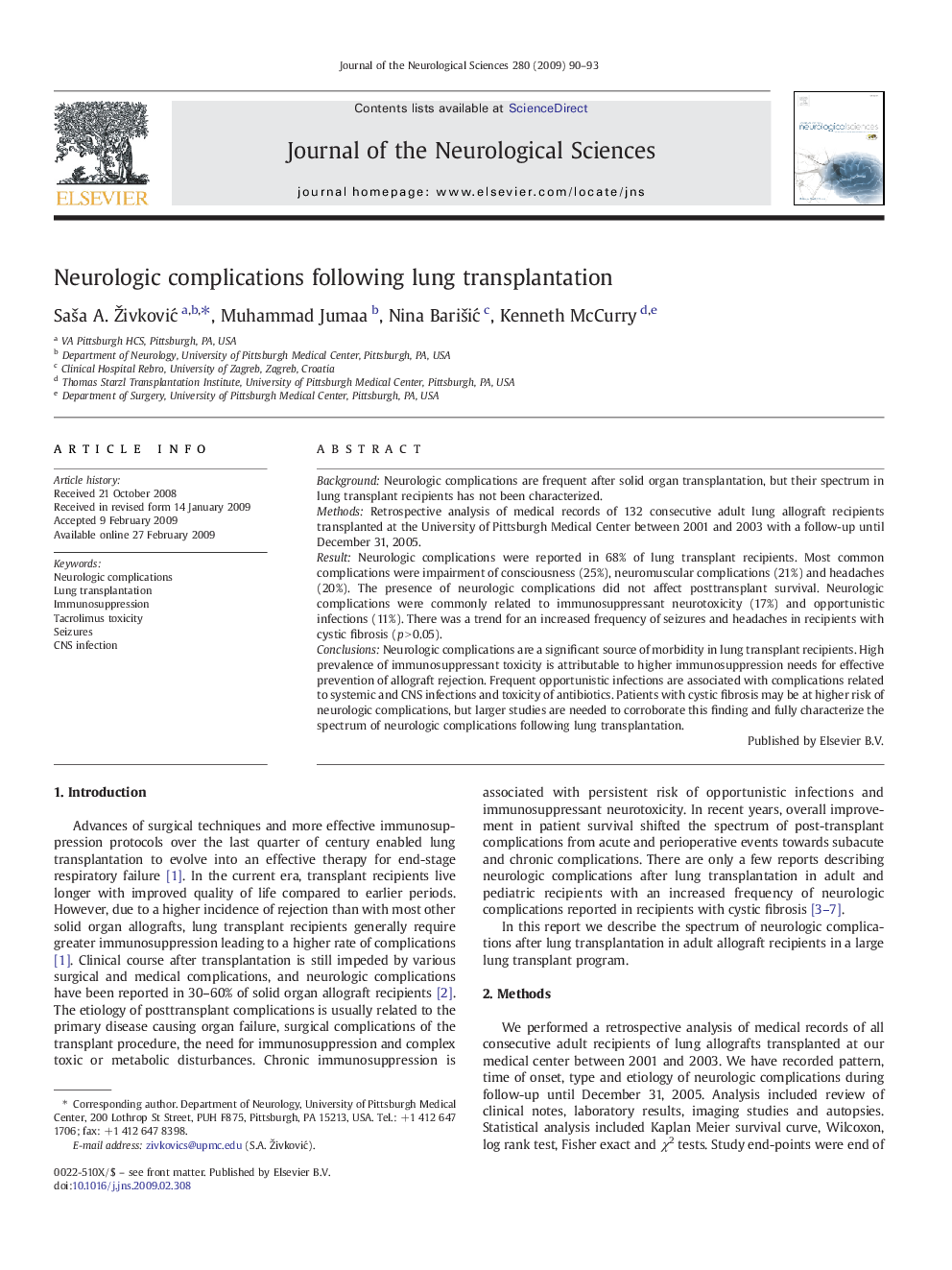| Article ID | Journal | Published Year | Pages | File Type |
|---|---|---|---|---|
| 1915158 | Journal of the Neurological Sciences | 2009 | 4 Pages |
BackgroundNeurologic complications are frequent after solid organ transplantation, but their spectrum in lung transplant recipients has not been characterized.MethodsRetrospective analysis of medical records of 132 consecutive adult lung allograft recipients transplanted at the University of Pittsburgh Medical Center between 2001 and 2003 with a follow-up until December 31, 2005.ResultNeurologic complications were reported in 68% of lung transplant recipients. Most common complications were impairment of consciousness (25%), neuromuscular complications (21%) and headaches (20%). The presence of neurologic complications did not affect posttransplant survival. Neurologic complications were commonly related to immunosuppressant neurotoxicity (17%) and opportunistic infections (11%). There was a trend for an increased frequency of seizures and headaches in recipients with cystic fibrosis (p > 0.05).ConclusionsNeurologic complications are a significant source of morbidity in lung transplant recipients. High prevalence of immunosuppressant toxicity is attributable to higher immunosuppression needs for effective prevention of allograft rejection. Frequent opportunistic infections are associated with complications related to systemic and CNS infections and toxicity of antibiotics. Patients with cystic fibrosis may be at higher risk of neurologic complications, but larger studies are needed to corroborate this finding and fully characterize the spectrum of neurologic complications following lung transplantation.
